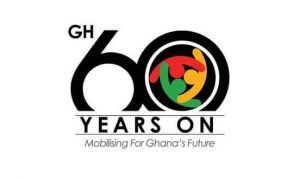 Tullow Oil Plc, Africa’s leading independent oil exploration and production is to lay off more workers as a result of the declining oil prices on the international market.
Tullow Oil Plc, Africa’s leading independent oil exploration and production is to lay off more workers as a result of the declining oil prices on the international market.
But the number of workers to be laid off is expected to be announced after consultation with the oil company’s employees as part of the Group-wide programme to increase efficiency and reduce costs.
This was contained in a statement issued by the Corporate Communications and Investor Relations Manager of Tullow Ghana, Bernice Natue in Accra.
It is incumbent on Tullow as a prudent and responsible operator to undertake a global review of its operations to ensure business efficiency and cost reduction, it noted.
The statement stated: “Consequently, all Tullow locations across the world are undertaking an organizational review to identify opportunities to optimize synergies, achieve cost reduction and ensure improved efficiencies.
This global process is designed to ensure a more cost conscious and value focused culture. The review is being undertaken across the full spectrum of Tullow’s activities, including exploration, projects development, operations and staffing”.
To this end, the oil firm noted some redundancies were expected throughout the Tullow Group, including Ghana. The extent of redundancies and organisational changes would be determined on case by case basis and may therefore differ from one Tullow operation to the other, it stressed.
Notwithstanding these circumstances, Tullow remains committed to its stated goals of Local content and Localisation in Tullow Ghana. It will continue to invest in building the capacity of Ghanaians to perform highly skilled roles in every aspect of Ghana’s fast growing oil and gas industry.
But Ghana’s Minister of Energy and Petroleum, Emmanuel Armah Kofi Buah was not in favour with the oil exploration and production firm’s decision to lay off Ghanaian workers.
Ghana which joined the league of oil producing countries in the world after it turned the valve on an offshore platform to signify the commercial production of oil and gas in commercial quantities in the Jubilee field of Cape Three Points in the Western Region of Ghana in 2010.
It is situated in the Deepwater Tano and West Cape Three Points blocks of the Tano Basin, which is one of the three offshore sedimentary basins in Ghana.
The field is jointly owned by a consortium of companies called Jubilee Joint Venture and managed by Tullow Ghana Ltd, a subsidiary of UK-based Tullow Oil Plc.
Other four members of the consortium are – Kosmos Energy, Anadarko Petroleum, Petro SA and the state-owned Ghana National Petroleum Corporation (GNPC), which discovered the Jubilee field in 2007 at the time Ghana was marking its 50th anniversary.
It was hoping to produce 55,000 barrels of oil per day (bpd), increasing to 120,000 barrels in six months. It currently produces about 105,000 barrels of oil per day (bpd).
Late President Prof John Evan Atta Mills, who on that fateful 15th December, 2010, wore safety gear and blue overalls to open the valve amidst fanfare in a televised ceremony some 60km off the coast, from the town of Takoradi, was expected to earn more revenues for the development of the country. Without doubt, Ghanaians welcomed the news, as it could enhance revenue generation and job creation, and significantly improve the national economy.
At the time of chalking that feat, Ghana did not have most of its laws in place to properly manage the new oil and gas industry.
That development made many people, including experts, economists and civil society actors to worry that Ghana would be afflicted by the “resource curse” which faces resource endowment countries in Africa. The “resource curse” often marked Africa’s oil and mining industries: decades of extraction that often saw only a few getting richer but the majority getting poorer, economic distortions caused by improperly managed resource wealth and hardly any money set aside for times when commodity prices dip or the wells dry up.
For Ghana, examples of such problems are very close to home. Nigeria, its West African neighbour — and the continent’s largest oil producer — saw successive governments deplete the estimated $400 billion earned from crude oil sales since the 1970s. Besides, Ghana’s own record in managing mineral revenues after a hundred years of gold mining is nothing to write home about.
THE JOURNEY
Eight months since crude oil prices began to tumble on the international market, no concrete step has been taken by the government to mitigate the risks of the falling prices on the Ghanaian economy which the country is paying dearly.
The Institute for Fiscal Studies (IFS), a leading Accra based economic think tank, recently revealed in its latest policy brief paper titled –‘The Falling Crude Oil Prices: Mitigating the Risk’, that “the economy might not be able to withstand the impact of the looming external shock, which could lead to further macro-economic instability”.
The IFS, which is headed by Prof Newman Kwadwo Kusi, a renowned economist, further warned that the recent stability of the cedi (Ghana currency) may fall victim to the falling oil prices with evidential weak forex inflows and lower corporate tax receipts from oil.
This may have the potential to significantly affect the country’s balance of payments and foreign reserves. The effect of the falling oil prices on individuals and businesses in the country may also be devastating, the institute further warned in its 10-page policy brief paper.
It insisted: “The resultant drop in private sector investment could slow down the rate of growth of the economy further with devastating consequences”.
Ghanaians have been witnessed to the negative impact of rising petrol prices in periods of oil price surge whose knock-effect of spiraling food prices ended up creating havoc in household budgets.
In Ghana, as the institute indicated, both statistical and anecdotal evidence point to the fact that higher oil prices have serious negative impact on economic performance. Whenever there is a rise in petroleum prices, all transport related businesses face the decision of whether to raise their charges to shift the increased costs onto consumers or not.
“Now that the crude oil price has more than halved in the past seven months and predictions suggest a prolonged slump in prices, there is no doubt that, the inaction of the government has dangerously exposed the country. It is clear that the estimated oil revenue in 2015 cannot be realized,” said the IFS
Between June 2014 and the second week of January 2015, the price of crude oil plunged by about 55% to below $50 per barrel as stockpiles mounted with no sign of a cut in production. Demand for oil is also weak, with the outlook for the global economy remaining subdued. Oil analysts predict that the price could fall below $40 per barrel before it rebounds.
The fall of oil prices has been steep, prompting companies and decision makers to wonder how suddenly unpredictable the market has become, forcing them to take measures to mitigate the numerous risks presented by the fall in price.
On inflation outlook, global inflation has remained subdued on the back of falling oil prices and weak demand. In the outlook, inflation pressures are expected to remain low due to spare capacity, tighter policies and declining commodity prices.
While gold prices are projected to average $1,276 in 2015, while cocoa is projected at about US$2,995 per tonne in 2015. These developments will have implications for the domestic economy. These have awakened the government to go to Parliament for the revision of the 2015 budget.
NEW PRJOCETIONS
Ghana’s Finance Minister Seth Tekper who announced new figures in Parliament yesterday said new projection for Ghana’s oil revenue had been pegged at 1.5 billion dollars after an initial figure of 4.2 billion dollars stated in the 2015 budget.
The new figure shows a difference of 2.7 billion dollars.
The revision of the budget is occasioned by a $700 million decline in government’s revenue, as a result of the plummeting crude oil prices on the international market.
The government last year benchmarked oil price at $99.38 per barrel in the 2015 budget, which was read in November 2014.
The budget estimates total revenue from oil at $1.24billion (GHc4.2billion), equivalent to 3.1% of Gross Domestic Product (GDP) and representing a benchmark price of $99.38 per barrel and output of 37.2 million barrels, according to the government.
“It is economically prudent to assess the impact of such commodity price volatility as soon as they arise in order not to jeopardize the achievement of the country’s economic objectives,” Mr Terkper said on the floor of Parliament.
African Eye News.com





